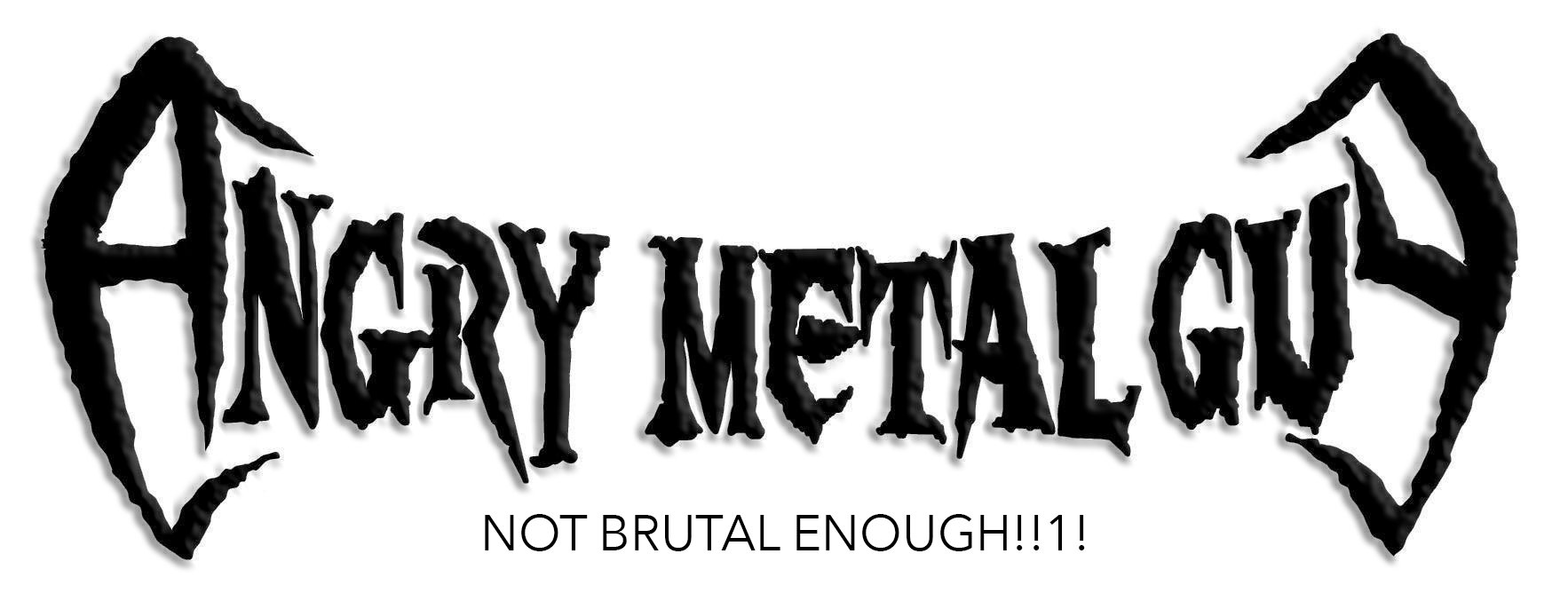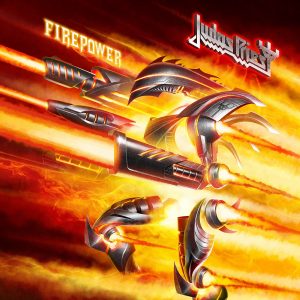 On March 9th, Judas Priest will release their 18th album, Firepower. This makes it the ideal time to take a long wistful look back over their historic catalog and rank their albums from worst to first according to the esteemed tastes of me, Lord Protector Steel. Along with Black Sabbath, Judas Priest was my gateway band into metaldom and they were my favorite act for a goodly portion of my teen years. I’ve followed them through the dizzying highs and crushing lows that made up their decades-long career, and I’m still lurking around the periphery though I’m nearing 50 years of age (that’s 500 in Viking gorilla years). History with a band is one thing, a band’s history is quite another, so let us dig through the dusty decades of metal together, shall we?
On March 9th, Judas Priest will release their 18th album, Firepower. This makes it the ideal time to take a long wistful look back over their historic catalog and rank their albums from worst to first according to the esteemed tastes of me, Lord Protector Steel. Along with Black Sabbath, Judas Priest was my gateway band into metaldom and they were my favorite act for a goodly portion of my teen years. I’ve followed them through the dizzying highs and crushing lows that made up their decades-long career, and I’m still lurking around the periphery though I’m nearing 50 years of age (that’s 500 in Viking gorilla years). History with a band is one thing, a band’s history is quite another, so let us dig through the dusty decades of metal together, shall we?
#17. Demolition (2001) – Many longtime Priest fans were surprised when Jugulator wasn’t a complete dumpster fire. With an unknown Halford wannabe plucked from the deep dish obscurity of a Columbus Ohio cover band and dropped into one of the biggest metal acts of all time, how could it be anything else? Well, it wasn’t great by any stretch, but it had moxie, energy and a few surprisingly decent tunes. This of course, caused us to let our guard down, thereby setting us up for the dreaded double surprise dumpster fire when the second Ripper opus, Demolition hit town like a nu-metal circus complete with a complimentary meth buffet.
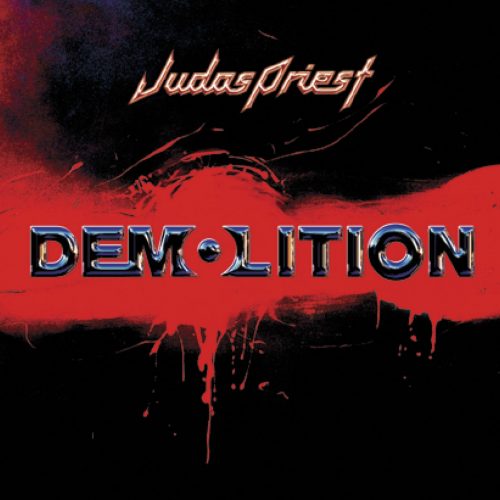
Obviously an attempt to re-imagine the band for younger Ozzfest audiences, Priest abandoned the Painkiller-ish style of Jugulator in favor of a more “modern” metal sound with elements of grunge, nu-metal and Nine Inch Nails styled electronica, all rammed down into the mix without romance or foreplay. Sure, this is one of Priest’s heaviest albums, but when it comes at the cost of decent songcraft, who really cares? And the tough guy posturing? Where did that come from? Opener “Machine Man” is like White Zombie mixed with an even less secure than usual Godsmack, who implore you to believe they really could kick your ass in a bar fight. From there you get dragged from the Alice in Chains with rabies mess of “Hell is Home,” to the electronica era Danzig poo-storm of “Devil Digger.” Almost nothing works and everything sounds poorly thought out. The sole bright spot, and I use that term loosely, is “One on One,” which at least works as a Neanderthal, Pantera-esque bro smacking anthem for lifting day.
In all fairness to Ripper, he fits in better here than on Jugulator and delivers a more controlled, restrained performance. It’s the songs that are the problem, not him. It’s hard to even accept Demolition as the work of the band I grew up with and idolized. Even the artwork screams “half-assed effort.” A dark time for the empire.
#16. Nostradamus (2008) – There are some bands for whom a conceptual double album seems plausible, perhaps even expected. Judas Priest wasn’t that kind of band even in their heyday, so when the aged, unstable version of the long-running act announced Nostradamus would be a lengthy conceptual piece, brows furrowed. To no one’s surprise, what we got was a big, overwrought mess full of misplaced symphonic bombast and tired, uninspired writing. Explaining Nostradamus is a real challenge because so little of it registers with me at all. It reminds me of the recent Therion debacle. There’s so much music to take in, but most of it floats by with no effect whatsoever. Priest made a career writing short, memorable metal hits, some quite suitable for radio play, and they simply were not cut out for this kind of ambitious, overindulgent conceptual stuff. The pressure to be profound and serious robbed them of the ability to be fun and catchy, and that spelled doom.
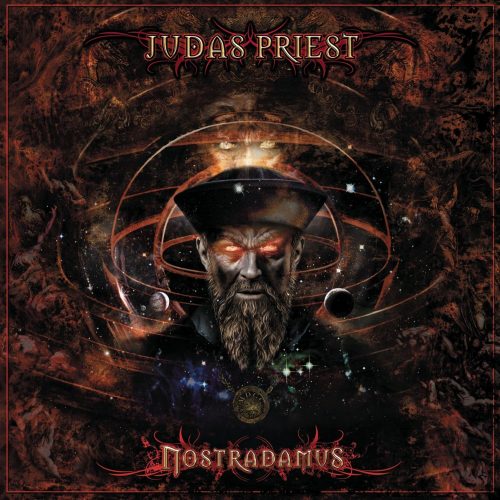
“War” is a good example of the problem here. It feels more like an interlude to something bigger than an actual song. That something never shows up, here or elsewhere. Instead you get 100 minutes of quasi-interludes with very little in the way of pay off. Even when a song begins to emerge out of the miasma, like with “Pestilence and Plague,” the overweening symphonics rob the music of all energy and metal edge.
Then there are the problems with self-editing. Cuts like “Revelations” are decent but get wrecked by running on far too long. “Death” suffers the same fate. Initially intriguing with a dark, somewhat doomy style, the 7-plus minutes take it too far down the road to keep interest, and you realize there’s an okay 3-4 minute song there at best.
You know what the ultimate indictment of Nostradamus is? No matter how many Priest concerts you go to, you’ll never hear someone screaming for a song from this album. No one’s favorite Priest song resides here. The band deserves credit for taking a risk and trying something different, but the end product just doesn’t deliver the goods. Rob sounds good at least.
#15. Ram It Down (1988) – Coming off a concerted effort to jump on the commercial radio rock wagon with Turbo, Priest found themselves at a crossroads. Should they return to their metal roots or continue further down the road of crass commercialism? They choose neither, and instead tried to split the baby on Ram It Down with predictably poor results. There are some metallic chestnuts here, like the title track, where the band tried to rewrite “Freewheel Burning” to remind folks they were still a metal band after the sellout-ism of Turbo. The apology tour continued with a song called, you guessed it, “Heavy Metal.” This smacks of desperation but it’s a solid song, groveling aside. “Hard As Iron” is a particularly vibrant, interesting cut, hinting at the up-tempo, balls out style the band would later adopt on Painkiller.
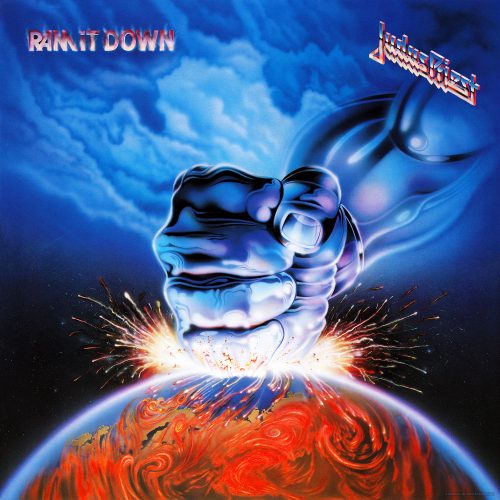
The album hits a disastrous skid with “Love Zone” and “Come and Get It,” both of which are the kind of material a seasoned act would know to discard, or leave to foreign B-side obscurity. The inclusion of a cover of Chuck Berry’s “Johnny B. Goode” puzzled me as a youngster and continues to befuddle me as an olde dude. Why, just why did this seem like a good idea? No one ever answers. The album’s second side opens strongly with the odd but gripping techno-metal rocker, “Blood Red Skies,” where Halford delivers one of his all time best performances. It’s a sneakily epic tune and one I love. The simple but anthemic “I’m a Rocker” is also quite memorable and entertaining.
Sadly, the album fizzles out with 2 total duds: the creepily cock rocking “Love You to Death” and the massively dull “Monsters of Rock.” Despite bright moments, Ram It Down feels like a rushed, unfinished product from an aging band increasing unsure how to appeal to younger metal fans. This was also the farewell album for long-time drummer, Dave Holland, freeing up the stool for the younger, more aggressive Scott Travis. Clearly a transitional album, Ram It Down at the very least helped pave the way for the ultimate comeback album, Painkiller. For that much we can be thankful.
#14. Jugulator (1997) – Ah, Jugulator – perhaps the most controversial album in Priest’s storied career. The first without Rob Halford, and the debut of Tim “Ripper” Owens, who was somehow chosen over such proven metal singers as D.C. Cooper and Ralf Scheepers. I went in without a clue what to expect, and was rather impressed by how heavy the album sounded. The title track sounds like “Painkiller” injected with horse testosterone, and cuts like “Blood Stained” and “Burn in Hell” are undeniable heavy, ripping tunes with decent staying power. Even “Dead Meat” holds up despite a silly chorus thanks to aggressive, in-your-face riffage and a snarling, growling turn by Ripper.
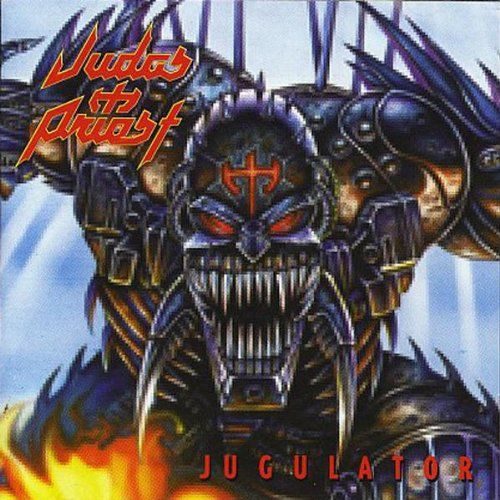
This is a hard album to get a grip on as a long time fan. On the one hand, it’s obviously not the same without Halford at the mic, but Ripper did add a dose of raw energy and seemingly lit a fire under the band’s collective arse. On the other hand, the album is far from perfect. “Decapitate” is a dumb song with a dumb chorus, and “Bullet Train” is a forgettable mess. The biggest issue is the lack of punch in many of the choruses. Too often they feel flat and without pop and sizzle. Another issue is how manically hysterical Ripper sounds. He’s often in screaming banshee mode, his voice a hammer and every song a nail1. His only real showing of “restraint” comes on the surprisingly solid, emotional closer “Cathedral Spires,” which is the album high-point. I’m sure he wanted to sound mammoth on his big league debut, but he over-sings on many occasions, often sounding forced, at times even comical.
Overall the album sounds quite different from what Priest had done before, and it’s much easier to enjoy when pretending it’s another band altogether. I don’t go back to Jugulator often, though select cuts reside on this playlist or that, but all things considered, it’s better than I had expected. After seeing how awful Demolition turned out, I’ve come to look upon this album as a sort of happy accident. Praise be.
Editor’s Note: The recent news that founding Priest guitarist Glenn Tipton has been diagnosed with Parkinson’s and is retiring from touring is truly sad and marks the end of an era spanning over 44 years. How this will impact the band going forward is unknown, but we at AMG want to extend our warmest support to Glenn and the Judas Priest family. Stay strong, stay metal.
